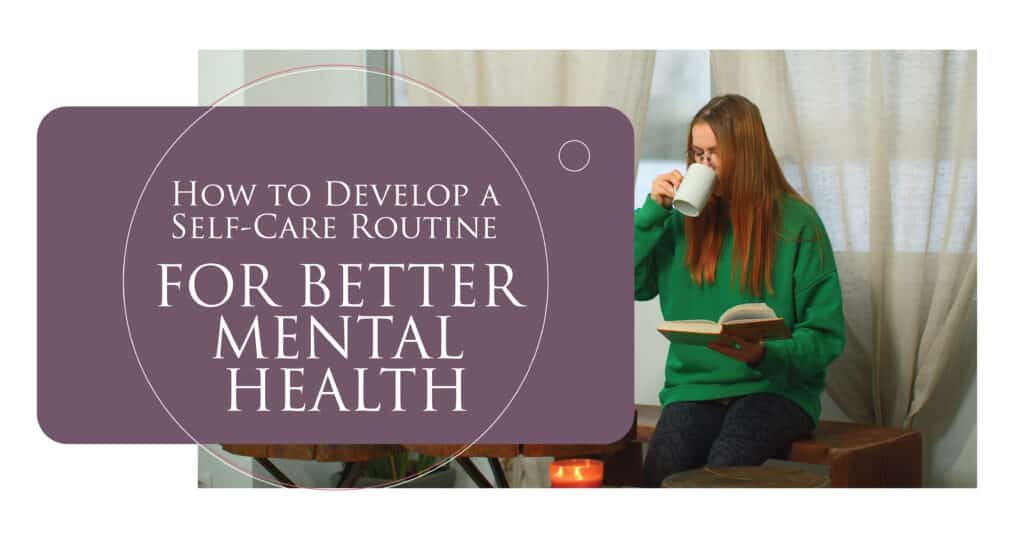In today’s world of time constraints and responsibilities overstepping moments of rest, it becomes extremely easy to forget who you are. Your days then pile up with work, family, friends, and other commitments, leaving little time for personal care. That is when self-care comes in handy!
Essential Takeaways
- Self-Care is Essential: This is very essential when it comes to keeping mentally healthy. You are not going for luxury; you are going for a needful requisite for health maintenance.
- Personalization is the key: Self-care is very individualized. Find a variety of practices that resonate with you and can fit your lifestyle.
- Consistency Matters: Building a self-care routine requires commitment. Take small steps, track your progress, and make necessary adjustments to create a sustainable practice.
By making self-care a priority, we ensure optimal care of our minds and emotions so that we can be filled with happiness and balance throughout life. In this guide, I show how one can build a self-care routine of his choice based on realizations of need and different self-care practices that may be much needed for improving one’s mental health.
Understanding Self-Care
What Is Self-Care?
Self-care is the intentional act of maintaining or improving your health and well-being. This act includes much more than taking a spa day (although that can be part of it) and encompasses a broad spectrum of activities to help you cultivate your physical, emotional, and mental health. It’s like putting on your oxygen mask before helping others. Taking care of yourself helps equip you to face whatever life gives you while enriching the lives of those around you.
Why Self-Care Matters for Mental Health
However, while it is seen as one of the indulgences for most people, self-care is essential in maintaining sound mental health. Through self-care, several studies have proven that one lowers their anxiety, improves moods, and increases overall emotional resilience and many more positive outcomes.
In the journal Psychological Science, researchers tracked subjects who participated in regular self-care activities and found that they recorded higher levels of well-being and stress.

Self-care is extremely effective when times are particularly stressful or emotionally turbulent. This activity serves as a buffer against the impact of life’s good and bad times. When I engage in self-care, I feel that my life is mine to control and I experience so much empowerment.
San Jose Mental Health
Identifying Your Self-Care Needs
Assessing Your Current Mental Health
Right before you can develop a self-care routine, first, you need to understand your current mental health status. Take some time and reflect on your feelings and behavior. Do you sometimes feel overwhelmed or anxious? Here are some questions to consider:
- How often do you feel stressed or anxious?
- Do you have sleeping difficulties or find yourself exhausted during the day?
- How often do you do things that make you happy or calm?
- Is there a regular source of stress in your life that you can’t deal with?
Learning What Self-Care Means for You
Self-care is highly individualized- what brings me peace or joy may not affect you this way. So, brainstorm what energizes and inspires you by trying various self-care practices. From there, maybe journaling about all the different things you’re trying that do or don’t bring you peace and joy. Reflection Prompts:
- What activities revitalize or calm me?
- When am I most connected to myself and others?
- What do I like doing in my free time?
- Have there been any hobbies I have always wanted to try but haven’t yet?
Components of a Self-Care Routine
A balanced self-care routine consists of many practices that care for many different aspects of your being. Let’s dive deeper into each category.
Physical Self-Care
Physical self-care refers to attending to and showing respect for your body and health. This might include:
- Exercise. Regular physical activity releases endorphins, sometimes called “feel-good” hormones. A good goal is to get at least 30 minutes of moderate exercise most days of the week. From walking to dancing, the daily grind just gets better!
- Nutrition. A balanced diet contributes to physical and mental well-being. Try to include all kinds of fruits, vegetables, whole grains, lean proteins, and healthy fats in your diet.
- Sleep Hygiene. Quality sleep can affect mental health. Establish a calming pre-sleep routine, avoid having screen devices visible at bedtime and create a comfortable sleeping space.
Emotional Self-Care
Emotional self-care refers to caring for one’s emotions and developing emotional resilience. Some include;
- Journaling. Writing or journaling about your feelings and thoughts may enable you to release intense emotions and better understand your mental state. Set aside time each day to reflect in your journal.
- Express Yourself. Don’t bottle it in. Talk with your friends or someone you love about how you are feeling. If you need extra support, consider therapy or a support group.
- Mindfulness and Meditation. Mindfulness techniques may help you stay present, which decreases your stress. Start listening to some meditation apps or guided exercises in mindfulness.
Mental Self-Care
Mental self-care is directed at stimulating the mind and lifelong learning. Here are some examples:
- Reading. Select books or articles that inspire or educate you. Reading not only increases your knowledge, but even gives you a welcome break from the stresses of everyday life.
- Puzzles and Games. Challenge your brain with puzzles, crosswords, or brain-teaser games. These can boost cognitive function and offer a fun break.
- Learning New Skills. Acquiring a new hobby or class. Learning new things will always give you an immense amount of pride and also activate your brain.

Social Self-Care
Your social relationships are essential to your mental health. Learn how to nurture your social health:
- Relationship Building. This is about spending quality time with your family and friends. Be it a coffee date, a phone call, or a night of games, meaningful connections just bring a smile to your face.
- Setting Boundaries. Know how to say no. Sometimes, taking care of yourself means eliminating obligations that drain you.
- Joining clubs or Organizations. Would you be interested in joining a club or organization? Connecting with people who have similar interests can be one way to build a sense of community and belonging.
Creating Your Self-Care Routine
How to Build Your Self-Care Practice
Now that you’ve decided what you want from self-care and elements of self-care, it is time to build your practice. Here’s a step-by-step guide to get you there:
- Identify What You Wish to Achieve by Your Self-Care Routine. What do you hope to achieve by your self-care routine? Do you want to reduce stress, improve mood, or work towards overall well-being?
- Choose activities. The best approach is to select activities from all the self-care categories that best serve your needs. Ideally, this will meet your physical, emotional, mental, and social needs.
- Make a Schedule. Plan your self-care activities. Think through your daily and weekly routine to determine when you could schedule some time for self-care. This could be as simple as taking 15 minutes in the morning to meditate, or making some time one week to walk with a friend.
- Start Slow. Do not try to do too much of everything. Contemplate focusing on two or three simple activities; you can add more as you get used to them.
Habit of Self-Care
Consistency is key. Follow these tips on how to cultivate a habit of self-care:
- Reminders. Remind yourself on your phone or calendar when to do your self-care activities.
- Track Your Progress. Keep a self-care journal or log your activities and feelings. This will help motivate you and enable you to identify which practices work best for you.
- Celebrate Small Wins. Acknowledge your efforts, no matter how small. Give glory to your little victories, whether staying the course for one week or attempting something new and following through.
San Jose Mental Health
Overcoming Barriers to Self-Care
Common Obstacles to Self-Care
Even with good intentions, barriers can present obstacles that make self-care the battle uphill. Here are some of the common barriers that people face:
- Time constraints limit self-care. Most individuals do not have sufficient time for self-care due to their busy schedules. This could indeed be a valid cause for concern; however, it is also well-known that short self-care practices can be just as effective as long ones.
- Feelings of Guilt. One might feel guilty for prioritizing selfhood. In such cases, it is important to understand the role one must play to nurture others well by first caring for oneself.
- Lack of Motivation. Sometimes, after a busy day at work, one may feel tired and lack the energy to pursue self-care activities. One should realize that initiating a routine can act as a bridge over the inertia barrier.

Steps to Overcome Challenges
Some of the practical ways you can overcome these challenges are described as follows:
- Make self-care a no-excuse task. Treat it as one of your routine activities. Schedule meetings and appointments as you schedule self-care time
- Practice self-compassion. Treat yourself as you will treat someone else. Don’t criticize; rather, work on what you can do better next time.
- Seek help. Discuss your goal of taking care of yourself with your friends, family, or a professional therapist through whom you can motivate yourself. Telling people your self-care goals is a sure way of making them accountable and supportive of your actions.
The Role of Mindfulness in Self-Care
Understanding Mindfulness
Mindfulness means being aware, at the moment, and free from judgment or distraction. It calls you to watch your thoughts, feelings, and surroundings closely, thus making you more aware and accepting. Of course, mindfulness can enhance any self-care routine and is a good addition to managing stress and anxiety.
How to Bring Mindfulness into Your Self-Care
Here are some ways to weave mindfulness into your self-care:
- Meditation. Start with just a few minutes a day. Focus on your breath, allowing your thoughts to float through without judgment. Apps like Headspace or Calm can walk you through many forms of meditation.
- Mindful Breathing. Pause during your workday to take a few deep breaths. Breathe in for four, hold for four, and breathe out for four. This technique might be especially useful during high-tension moments.
- Mindful Walking. If you go for a walk, pay attention to what is happening around you. See what you see, hear what you hear, feel your body. This practice has helped you be grounded and bring awareness to the present.
Self-Care Practices for Different Lifestyles
The word self-care is different for everyone. Here are some customized ideas for a myriad of lifestyles:
For Working Professionals
- Power Naps. Short napping, 10-20 minutes, can recharge your energy levels and enhance concentration.
- Mindful Commute. Utilize the daily commutes to catch up on mindfulness or motivating podcasts.
- Desk Stretching. Keep on taking quick stretch breaks at the desk, just as the tension starts to build.
For Parents
- Family Activities. Plan and carry out self-care activities involving the entire family, such as family walks or game nights.
- Tag Team. With your teammate or buddy support system, work out some time just for solo self-care sharing childcare.
- Quiet Time. As a family, find some quiet time in the day to have some quiet personal time.
For Students
- Study Break. Use study time breaks to refresh. During these break times, use the time to perform a quick act of self-care like stretching, deep breathing, or reaching your desk and grabbing a healthy snack.
- Study Groups. Joining the study groups would help develop a social relationship and build mutual support.
- Campus Resources. Use the mental health resources available on the college campus; sometimes, the counseling service or even wellness program can be optimally utilized in the institution.
Evaluating Your Self-Care Routine
Periodic Checking
Once you’ve designed a self-care routine, you should periodically review how well it’s working. Ask yourself:
- Are you feeling more balanced and less stressed?
- Do you notice better improvements in your mood and overall well-being?
- Would you want to add or change some practices?
Adapting to Change
As you change, so will your self-care. Be willing to evolve your routine to meet your needs as you grow and transform. If you realize certain practices no longer resonate with you, don’t be afraid to seek out other activities that will better work for you in your current circumstances.
San Jose Mental Health
FAQs
- What are some quick self-care activities I can do during a busy day?
It can be through deep breathing exercises, stretching, drinking a glass of water, or merely taking time to stand outside and breathe in the fresh air. No matter how small the moment might seem, it can still be considered self-care.
- How often should I practice self-care?
There’s nothing wrong or right in this regard; it is just something that can be incorporated into daily life. It could be some mindfulness minutes per day or a more significant activity one week. Find what works for you.
- What if I don’t know what self-care activities I enjoy?
Experimentation is the key! Try journaling, walking, or playing hobbies until you find what brings you joy and relaxation.
- Can self-care improve my mental health?
Absolutely! Self-care activities will regularly reduce stress, improve your mood, and increase emotional resilience, associated with enhanced mental health.
- How can I involve my friends or family in my self-care routine?
Share your self-care goals with your friends or family members and ask them to accompany you as you exercise, cook healthy foods, or even take a mindfulness class together.








